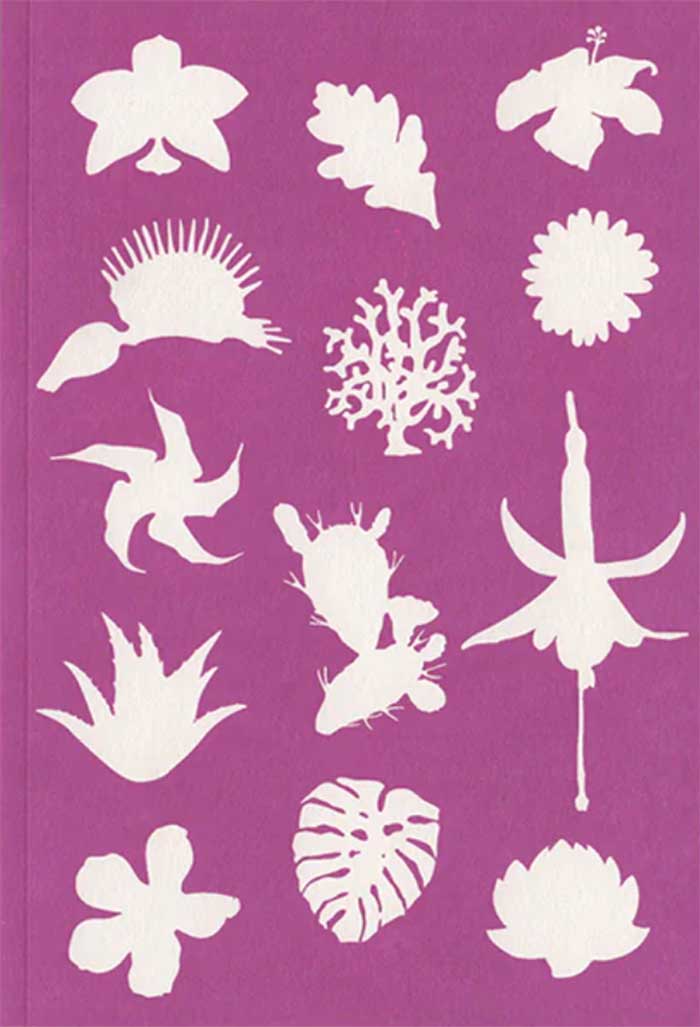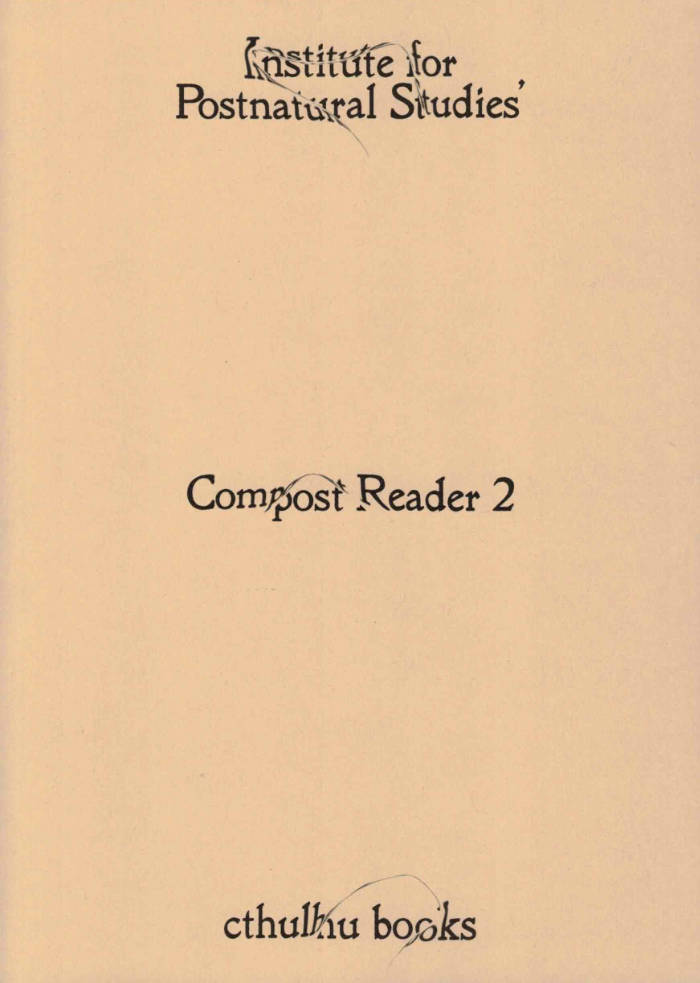Institute for Postnatural Studies
Institute for Postnatural Studies

Making Kin II: Plants
Institute for Postnatural Studies
Xenofiction proposes an exercise of placing our imagination—and with it our body—inside another's perspective. When we practice becoming with another's experience, we practice empathy. Even though every time we try to speak through a non-human voice we have to accept the impossibility of truly inhabiting another being's vital experience, we can find ways through creative practice to expand the way we sympathize and empathize. This anthology convenes twelve short stories and a visual essay by writers and non-writers that have experimented with plan embodiment.
With texts by: Alice Ahad, Bianca Baldi, Fatma Belkis, Alix Breda, Kai Edwards, Anastasia Eggers, Katie Goss + Rebecca Reynolds, Moselle K, Evie Muir, Yuri Pascacio Montijo, Christian Salablanca Diaz, Javier Velázquez Cabrero and Josfina Vidal Miranda.

Compost Reader vol. II
Institute for Postnatural Studies
The Compost Reader series sees the world as an interconnected being, where all its parts relate to one another. Composting as a way of cultivating consciousness through questions instead of answers, and from uncertainty and doubt. Hydro-memories, a talking lion, sounds that live in a snail shell, a dry swamp, a herbal medicine witch girl, ephemeral queer performances, chemical-sensing tentacles, stone eaters, scriptures-fossil, heavy cheese-like lids, dolphins in traffic, blue humanities, and digital forensic public spaces are some of the matters fermenting in this Compost Reader.
Authors:
Filipa Ramos
Panamby
María Morata and Lorenzo Galgó
Marie Skousen
Natasha Thembiso Ruwona
Zachary Schoenhut
Pauline Ruffiot
alfonso borragán
Valeria Mata and Maxime Dossin
Esther Gatón
Cristóbal Olaya Meza
Paloma Contreras Lomas
Series Co-editors: Yuri Tuma, Gabriel Alonso

Making Kin
Institute for Postnatural Studies
When we practice becoming with another’s experience, we practice empathy. When we embody collectiveness, we understand ourselves as a whole and therefore feel no separation. What would it be like to inhabit a body without limits or definition? Which words and meanings make us feel like “non-animals”? The literary genre of xeno fiction proposes an exercise of ethological research and imagination, placing our body inside another’s perspective. This publication convenes writers and non-writers that have experimented with animal embodiment to create literary works and visual interpretations that explore different ways to experience “otherness.” In this volume of the Making Kin series, we focus on non-human animals and hybrid bodies.
Authors: Zoë De Luca Legge, Esther Merinero, Eva Piay, John Kazior, Jorge de la Cruz, Marianne Hoffmeister Castro , Luca E. Lum, Anonymous, Paula Proaño Mesías, Laura Dominguez Valdivieso, Adèle Grégorie, Morgan Wood

Compost Reader vol. I
Institute for Postnatural Studies
Tongues as long as branches, cockroaches in a ‘hot-history’, the revival of extinct plants, pre-patriarchal paranthropology, thinking with toxic plants in contemporary art, digestive ontologies in a spiral, capitalist bruxism, a business school run by eukaryotes, a society where we pay to eat celebrities, a chumbo, and 800g of bonito tuna fish are some of the matters fermenting in this COMPOST READER.
From Cthulhu Books, we think of the upcoming world as a big Compost. Of composting as a new relational ontology, as our earthly condition. Composting makes us a single planetary material (humans, being, objects, technologies). It is the past and the future. Its space, place, and it’s matter. It is a world as a whole, in which there are no separate natural and social realms, where there are celebratory rituals, entanglements, and interrelationships. Cultivating awareness from questions more than from answers, from uncertainty and doubt.
This book talks about beginnings, new relationships, unstable ways of doing, thinking and being, letting questions breed new questions.
With Claudia González,
Adrian Schindler and Eulàlia Rovira,
Gerard Ortín,
Jonathon Keats,
Marianne Hoffmeister,
Yamil Leonardi,
Ricardo Quesada,
Sonia Fernández Pan,
Azucena Castro,
Mónica Mays,
Michael Wang
and Lucrecia Masson.
And more

Zoo Index - Reader (volume 1)
Zoo Index Reader examines the relevance and effect that zoos have in shaping our gaze towards non-human animals and by extension ourselves/each other.
Through a mixture of visual research into zoological space—in the form of an A-Z glossary—and written contributions on the history of menageries, the confinement and privatization of land, pets, zoo architecture, the "naturalization" of animals, and the role of zoos and animals in the history of cinema, among many other things, this first volume asks: Do we need zoos? What does a meaningful coexistence with animals look like? Why have we decided to give a balloon to an elephant?
With Terezie Štindlová, jacob lindgren, A+E Collective, Chanelle Adams, John Berger, Andrea Branzi, David Hancocks, Eliot Haworth, Institute for Postnatural Studies, Suzanne van der Lingen, Angelo Renna, Laurel Schwulst, Richard Weller.
Designed by Terezie Štindlová